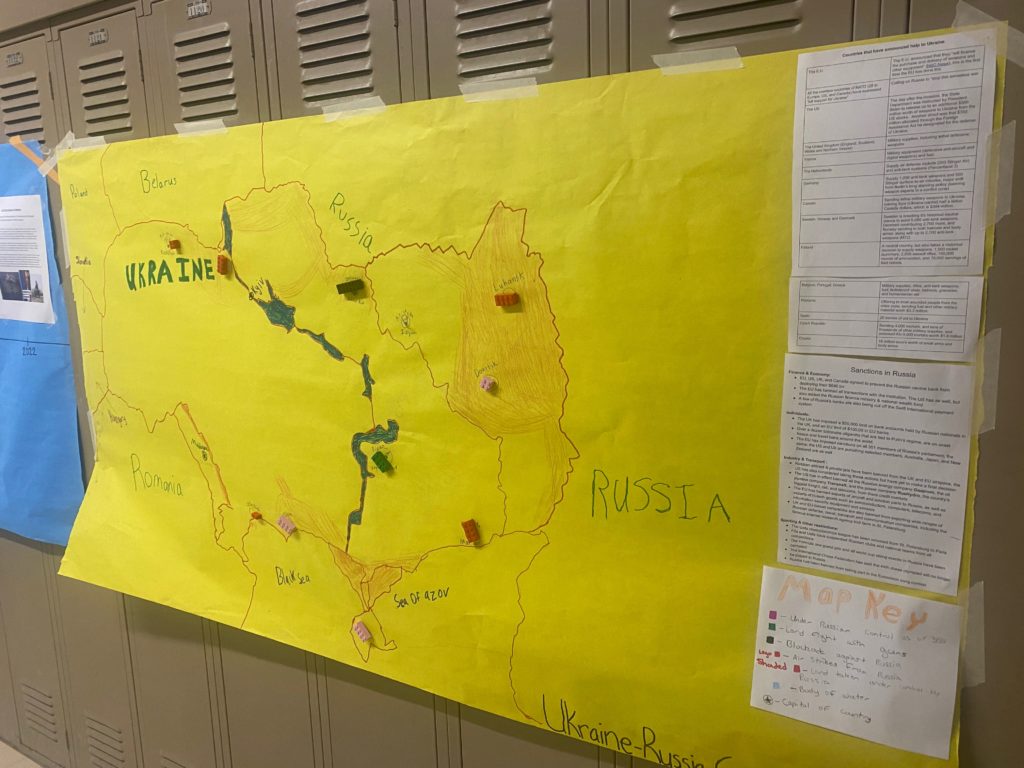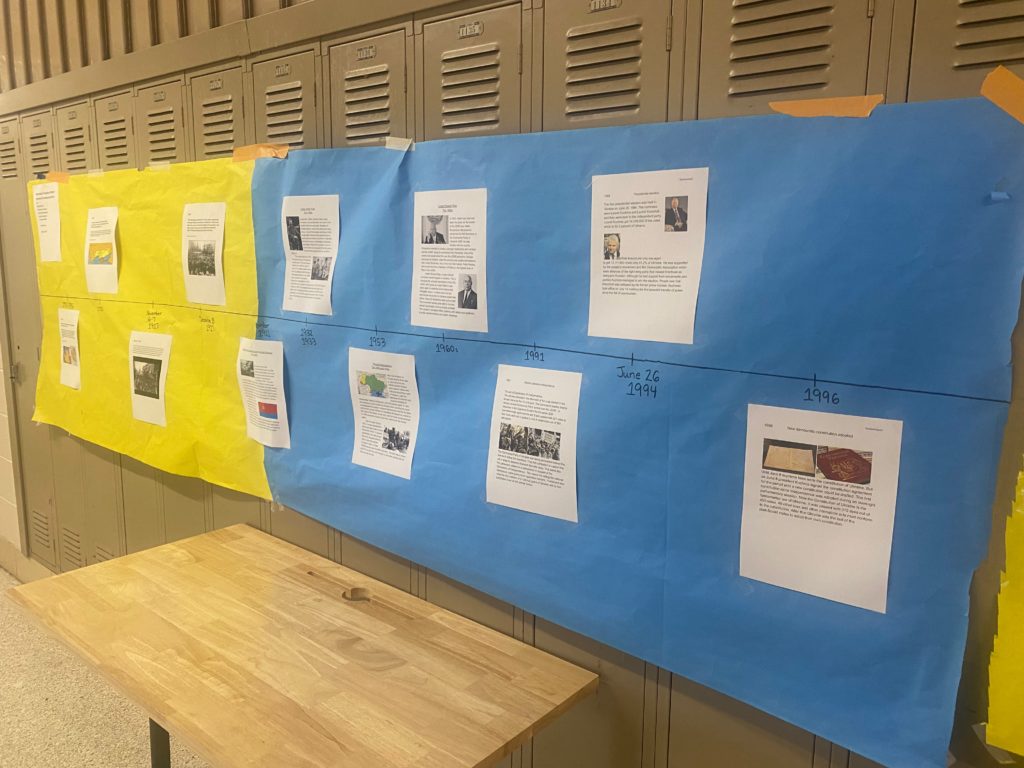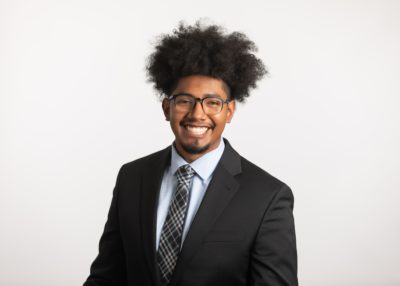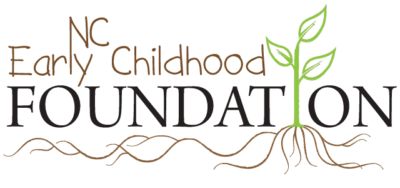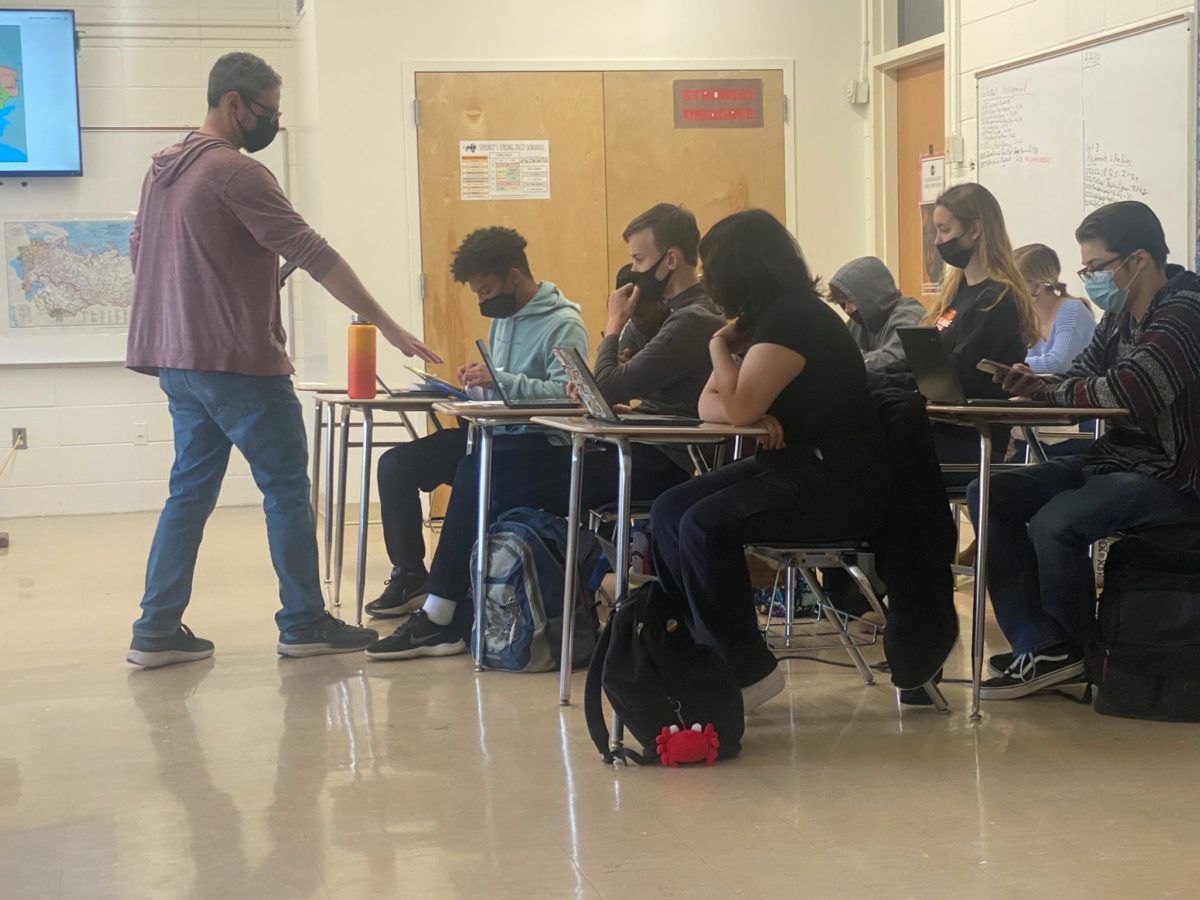

Students got up in front of Mark Sprintz’s global issues class at Orange High School in Hillsborough last week and debated the merits of Ukraine joining the North Atlantic Treaty Organization (NATO).
Split into two groups, the students — one group of three and one group of two — took turns laying out arguments that raised a series of questions worth pondering for anyone interested in the current crisis.
Is Ukraine joining NATO a threat to Russia? Does Russia need a buffer country between it and the rest of NATO? Did NATO go back on its promise not to expand eastward?
And on the other side: Even if Ukraine was barred from joining NATO, would that end the conflict between it and Russia? Shouldn’t Ukraine be allowed to join NATO if it wants to and meets all the requirements, just like any other country? And isn’t Russia the aggressor?
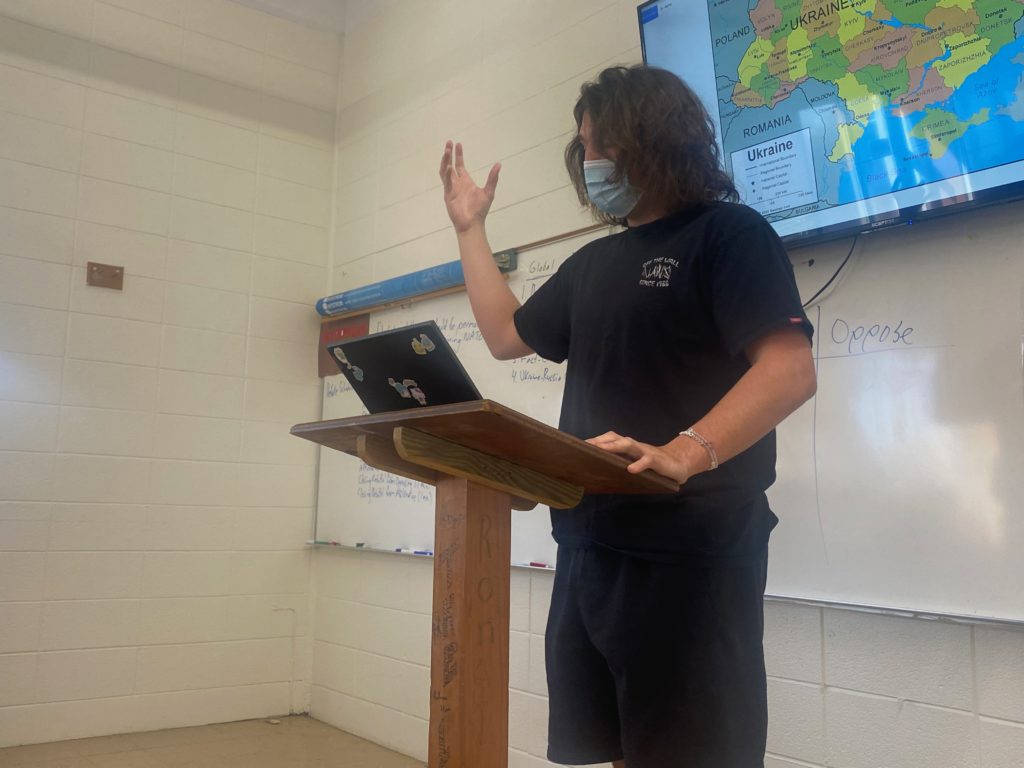

Back and forth, a student from each group would stand up and present arguments for and against. And then after a brief break to collect their thoughts, they would get back up and give rebuttals to the other team’s arguments.
This debate last Friday was the culmination of a week-long exploration of Ukraine by the global studies class. It’s all part of Sprintz’s effort to make current events come alive for students who will one day look back at this moment as an important piece of history.
“I figured with the conflict that’s happening, I’d come up with a project that would allow students to interact with the history, what got us to the conflict, and then come up with a hands-on project where they can share with each other what they learned,” he said.
He said that more than some historic events, this situation is engaging students in a meaningful way. He talked about how in his American history class, he’s teaching about World War I, and he is trying to impart how dramatic historic events can sometimes come on suddenly.
“The fact is one day you’re not at war … and then because of things that are totally out of your control, your cities are in rubble,” he said he told the students. “The people in Ukraine, most of them, two and a half weeks ago were just sitting in their classrooms, living their lives, and then next thing you know you have to make this decision: Do you want to stay with your family — or if you’re a young man or even an older man — stay and fight while your family leaves?”
The classroom assignment on the situation in Ukraine included the creation of an illustrated timeline by students that goes through the ancient history of Ukraine and Russia and continues to the present day, a geographical map that includes a list of the sanctions being levied against Russia, and a list of counties that have pledged help to Ukraine.
Sprintz was even able to get a guest speaker to come and discuss the conflict via Zoom: Graeme Robertson, the director of the UNC-Chapel Hill Center for Slavic, Eurasian and East European Studies. And then, there was the debate on Friday.
Timothy Mitchell, a student who argued for Ukraine to be able to join NATO, said the debate was a chance to really “dig in” to world events and learn “about what’s actually happening via historical proofs instead of based off of things you’re seeing on TV.”
Ethan Horton, a 12th grader, was one of the students arguing against Ukraine’s inclusion in NATO.
He said the process of having something happen in the world, having it turn into a class project, and then having to tackle the research and debate in an effort to understand it, helps he and his fellow students to develop a better understanding of the world as well as new skills.
“It’s just good for all of us to be able to broaden our horizons and learn about these issues,” he said.
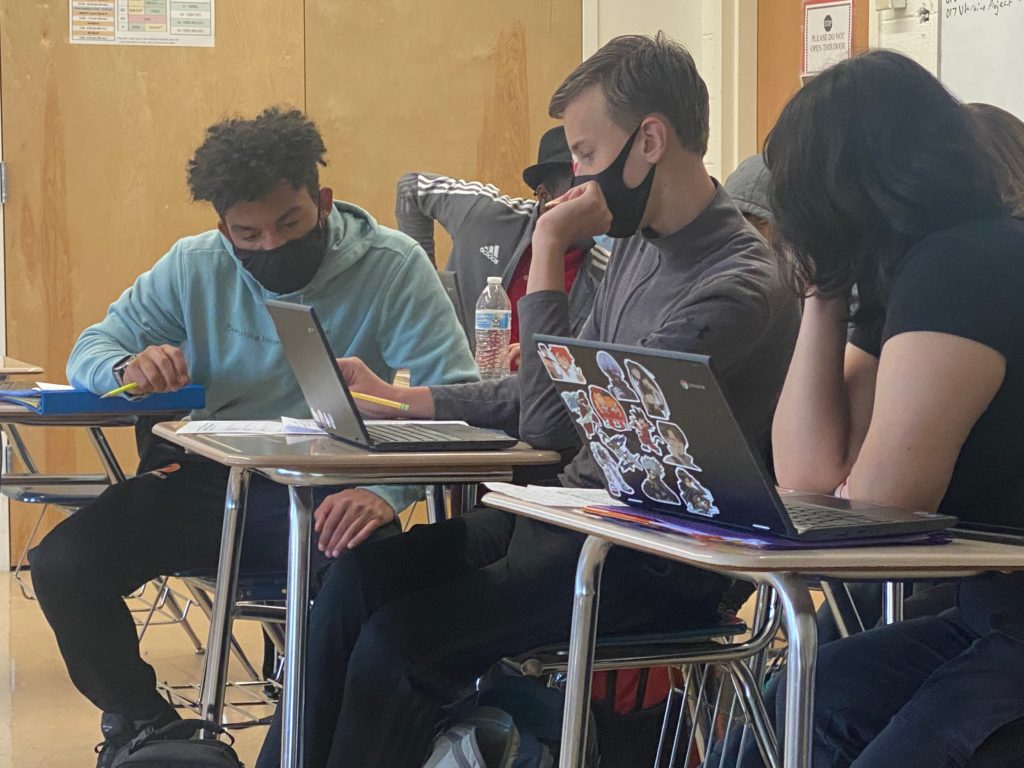

Shyrell Maitra, a 12th grader, said that they have been paying attention to what’s happening in the news, but prior to this assignment, they felt like they had a very surface-level perspective.
“I think it’s really easy to look at things from the perspective of the U.S., and it’s harder to go out of that,” they said, adding later: “It’s really interesting to look at both sides, even if you think you wouldn’t agree with something. I think this really helped me … ground my already-existing opinion.”
The premise of Sprintz assignment was that this kind of work was necessary to understand what’s happening. Geography, history, geopolitics — they all play a part in the current conflict.
And while the students were researching, Sprintz was also trying to guide them to become good consumers of information. The text of the class assignment includes this caution: “When considering the reliability of information from websites, remember to consider the source. Do a little digging on the background of the sources and try to find out if they are biased in one direction or another. Make sure to read from multiple sources and identify conflicting information.”
But perhaps one of the biggest lessons students may learn is about the inherent unpredictability of the world.
“This could happen anywhere at anytime. It’s just the reality of the world, unfortunately,” Sprintz said he told his American history class.


